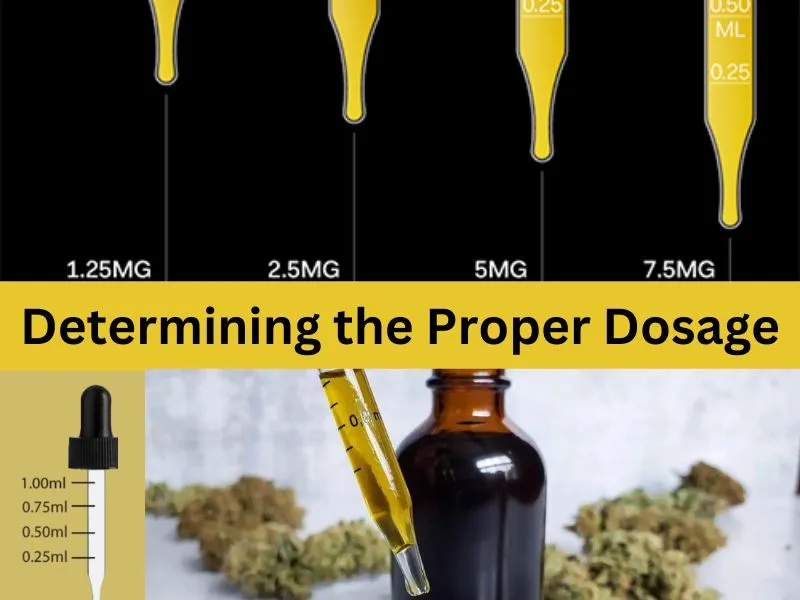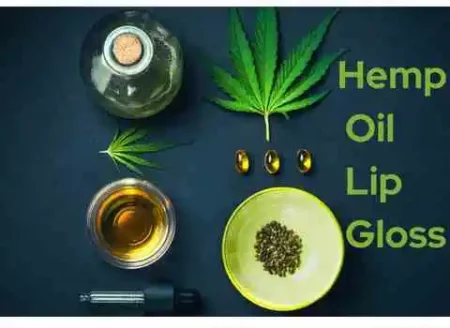In a world that values natural and holistic approaches to health and wellness, herbal remedies have gained immense popularity. Among the various forms of herbal preparations, herbal tinctures stand out for their effectiveness and versatility. Welcome to this all-encompassing blog post, where we will explore the realm of Herbal Tinctures. We’ll dive deep into understanding their nature, their creation process, the advantages they offer, and much more. Whether you’re an experienced herbal enthusiast or a curious newcomer, this guide aims to provide you with valuable insights into this captivating aspect of herbal medicine.
What is a Herbal Tincture? Herbal Tinctures Dosage & Frequency
An herbal tincture is a potent liquid extract derived from medicinal herbs and various plant materials. It involves using a solvent, usually alcohol, to extract and preserve the plant’s active compounds and beneficial properties. Tinctures have a long history of use in traditional medicine systems worldwide, including Ayurveda, Traditional Chinese Medicine (TCM), and Western herbalism.

How are Herbal Tinctures made?
Herbal tinctures are typically made through a process called maceration. The chosen herbs or plant parts, such as leaves, flowers, roots, or bark, are soaked in alcohol for several weeks or months. Throughout this process, the alcohol effectively draws out the active components from the plant material, forming a concentrated liquid extract. The Tincture is then strained and bottled for use.
Benefits of Herbal Tinctures
Enhanced Bioavailability
Herbal tinctures offer a high level of bioavailability, meaning the body readily absorbs them. The alcohol used in tincture preparation acts as a powerful solvent, extracting a broad spectrum of active compounds that might not be as easily extracted with other methods. This enables the plant’s medicinal properties to be absorbed and utilized optimally.
Long shelf life Extended Durability
Due to their alcohol content, herbal tinctures have an extended shelf life compared to other herbal preparations. The alcohol acts as a preservative, inhibiting the growth of bacteria and mold, thus maintaining the potency and effectiveness of the Tincture for an extended period.
Convenient and Customizable Dosing
Herbal tinctures provide a convenient way to consume herbal remedies. They often come with droppers, making measuring and adjusting the dosage according to individual needs easy. This allows for precise and customizable dosing, making tinctures suitable for people of all ages.
Why choose herbal tinctures?
Herbal tinctures offer numerous advantages, including their long shelf life, customizable dosing, and ease of use. They provide a convenient way to incorporate herbal remedies into your daily routine and can be tailored to individual needs.
Taking Herbal Tinctures: Dosage and Frequency

Determining the Proper Dosage
The appropriate dosage of a herbal tincture depends on various factors, such as the herb’s potency, the individual’s age, weight, and overall health. It is essential to seek guidance from a healthcare professional, or herbalist or adhere to the instructions provided by the tincture manufacturer. They can help you determine the ideal starting dose and make any necessary adjustments based on your specific requirements.
Frequency of Use
Herbal tinctures are typically taken two to three times a day. Nevertheless, the frequency of usage may vary depending on the specific herb and the condition being addressed. Some tinctures are taken only when needed, while others are part of a regular daily regimen. Always follow the recommended frequency specified by the practitioner or instructions on the tincture label.
Administering Herbal Tinctures
There are multiple ways to consume herbal tinctures, which can be chosen based on personal preference and the specific characteristics of the Tincture. Here are some standard administration methods:
Sublingual Administration
One common approach is sublingual administration, where the desired dosage of Tincture is placed under the tongue and held for approximately 30 seconds to a minute before swallowing. The sublingual glands absorb the Tincture directly into the bloodstream, allowing for rapid absorption and onset of effects.
Diluting in Water
Mixing the Tincture with a small amount of water is another popular method. Add the recommended dosage to a glass of water, stir well, and drink. This method can be helpful for those who find the taste of the Tincture too strong or prefer a milder flavor.
Blending with Beverages or Food
If the taste of the Tincture is not appealing, you can mix it into your favorite beverage or food. Incorporating the Tincture into smoothies, teas, juices, or salad dressings can help mask the flavor while still providing the desired benefits.
Topical Application
Specific tinctures can be applied topically for localized effects. Dilute the Tincture with a carrier oil, such as coconut or jojoba oil, and apply it directly to the skin. This method is commonly used for skin conditions, muscle aches, or joint discomfort.
Tips for Optimizing the Benefits of Herbal Tinctures
To make the most of your herbal tincture experience, consider the following tips:
- Read the label and follow instructions:Each herbal Tincture may have specific instructions and dosage recommendations provided by the manufacturer. To ensure safe and effective usage, reading and diligently adhering to these instructions is crucial.
- Start with a low dosage: When incorporating a new herbal tincture into your regimen, it is recommended to commence with a low dosage and gradually augment it as necessary. By starting with a low dosage and gradually increasing it, you allow your body to adapt and better understand your individual response to the Tincture.
- Consider Timing: Depending on the intended effects, specific herbal tinctures may be more effective when taken at particular times of the day. For example, Tinctures promoting relaxation and sleep might be best taken in the evening, while those supporting energy and focus could be taken in the morning.
- Be consistent: To achieve optimal results, it is essential to maintain consistency in using herbal tinctures. Taking tinctures regularly and as directed is advised for the best outcome. Establishing a routine will ensure that you receive a steady supply of the herb’s beneficial compounds.
- Observe your body: Pay close attention to how your body responds to the herbal Tincture. If you observe any adverse effects or sensitivities, it is important to discontinue use and seek advice from a healthcare professional. If you notice any adverse effects or sensitivities, discontinue use and consult with a healthcare professional. Conversely, be mindful of positive changes or improvements in your well-being, which can help you gauge the Tincture’s effectiveness.
- Store Properly: To maintain the potency and shelf life of your herbal tinctures, store them in a cool, dark place away from direct sunlight and excessive heat. Additionally, ensure the bottle is tightly sealed to prevent oxidation and maintain the Tincture’s quality.
Safety Precautions and Considerations
While herbal tinctures are generally safe, it is essential to keep the following safety precautions and considerations in mind:
Before integrating herbal tinctures into your health routine, especially if you have any underlying health conditions or are currently taking medications, it is advisable to consult with a healthcare professional or a qualified herbalist. Their guidance can provide valuable insights and ensure the safe and appropriate use of herbal tinctures in your specific situation. They can give personalized advice, ensure no contraindications, and help determine the proper dosage for your situation.
Allergies and Sensitivities:
Certain individuals may have allergies or sensitivities to specific herbs. It is crucial to be aware of any potential allergens and conduct a patch test before using a new herbal tincture, especially if you have a known allergy to plants or botanicals.
Herb-drug interactions:
Herbal tinctures, like other herbal remedies, have the potential to interact with certain medications. If you are currently taking prescription medications, it is crucial to consult with a healthcare professional to evaluate any possible interactions or conflicts between the herbal Tincture and your medications. This step is essential to ensure your safety and avoid any adverse effects.
Pregnancy and Breastfeeding:
Pregnant or breastfeeding individuals should exercise caution when considering the use of herbal tinctures. It is important to note that not all herbs are safe for consumption during pregnancy or lactation, as they may have stimulating or uterine effects. Consulting with a healthcare professional is crucial before incorporating herbal tinctures into your routine during these periods. Their guidance can provide valuable insights into which herbs are safe to use and which should be avoided, ensuring the well-being of both the individual and the baby.
Quality and Sourcing
Ensure that you obtain your herbal tinctures from reputable sources. Look for Tinctures made from high-quality, organic herbs to minimize the risk of contaminants or adulteration. It is advisable to select herbal Tinctures from manufacturers that adhere to Good Manufacturing Practices (GMP) and undergo third-party testing for quality assurance. Doing so gives you greater confidence in the safety and quality of the tinctures you choose.
Adhere to Recommended Dosages:
While herbal tinctures can be highly beneficial, it is essential to adhere to recommended dosages. Taking more than the recommended dosage does not necessarily mean better results and can potentially lead to adverse effects.
Frequently Asked Questions
Are herbal tinctures safe?
When used responsibly and under the guidance of a qualified practitioner or herbalist, herbal tinctures are generally considered safe. However, it is crucial to consider individual sensitivities, allergies, and potential interactions with other medications. It is always wise to consult with a healthcare professional before incorporating herbal tinctures into your health regimen. Their expertise and knowledge can help ensure the safe and appropriate use of herbal Tinctures for your specific circumstances.
Are there non-alcoholic alternatives to Herbal Tinctures?
There are non-alcoholic alternatives available for those who prefer to avoid alcohol. Glycerin, vinegar, or vegetable-based glycerites can be used as solvents to make alcohol-free herbal tinctures. These alternatives may have a shorter shelf life and slightly different extraction properties, but they can still be effective for many herbal preparations.
Can herbal tinctures be used topically?
Yes, herbal tinctures can be applied topically for various purposes. Diluted Tinctures can be used in skin care, as compresses, or for massage. Nevertheless, it is essential to be aware that certain herbs may potentially cause skin irritation or trigger allergic reactions. Therefore, conducting a patch test or seeking professional advice before applying herbal tinctures topically is crucial. This precautionary measure helps ensure the safety and suitability of the Tincture for your skin
Can I make my own herbal tinctures at home?
Absolutely! Creating herbal tinctures at home can be a fulfilling and budget-friendly approach to delving into the realm of herbal medicine. However, conducting thorough research and adhering to proper guidelines is essential to guarantee both safety and efficacy in the tincture-making process. By doing so, you can confidently embark on your herbal journey while reaping the benefits of this homemade herbal medicine. Start with high-quality herbs, use a suitable solvent, and follow the correct maceration and extraction process. It’s also recommended to sterilize equipment and store the Tincture properly.
Are there any side effects of herbal tinctures?
Although herbal tinctures are generally considered safe, it is crucial to recognize that individual reactions can differ. Some individuals may experience allergic reactions or digestive disturbances when consuming certain herbs. Furthermore, excessive or prolonged use of specific herbs can potentially lead to adverse effects. Therefore, consulting with a healthcare professional or herbalist is recommended to determine the appropriate dosage and duration of use tailored to your specific needs. Their expertise can help ensure the safe and effective incorporation of herbal tinctures into your health regimen.
Conclusion
Herbal tinctures offer a powerful and versatile way to harness the healing potential of medicinal plants. Their high bioavailability, long shelf life, and customizable dosing have become popular among those seeking natural remedies. However, it’s essential to remember that herbal tinctures, like any form of medicine, should be used responsibly and with proper guidance.
If you consider incorporating herbal tinctures into your wellness routine, consult a qualified practitioner or herbalist who can provide personalized advice based on your unique health circumstances. They can help you choose the appropriate herbs, determine the correct dosage, and ensure that any potential interactions or contraindications are considered.
Embracing the world of herbal tinctures allows us to tap into nature’s pharmacy, unlocking the vast array of benefits that medicinal plants have to offer. From promoting overall well-being to addressing specific health concerns, herbal tinctures provide a natural and holistic approach to healing. So, venture into this exciting realm, explore the diverse range of herbs available, and discover the transformative power of herbal tinctures for yourself.




